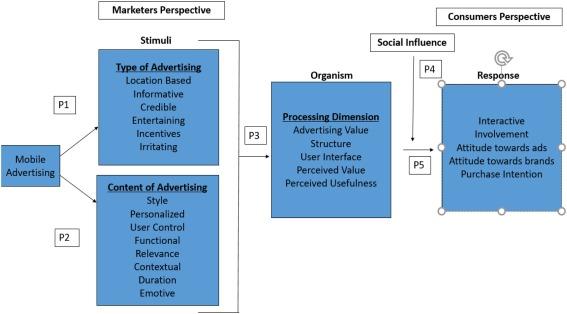10 Inspiring Case Studies: Successful Inclusion Strategies That Drive results
Diversity and inclusion strategies are at the core of modern organizational success.When companies implement effective inclusion practices,they not only empower their teams but also achieve extraordinary business outcomes. In this article, we dive deep into 10 inspiring case studies that showcase real-world examples of successful inclusion strategies. Learn how these organizations drive innovation, enhance employee engagement, and build a foundation for enduring, positive change.
Why Are Inclusion Strategies Vital?
Workplace inclusion strategies foster environments where every individual feels valued and empowered to contribute to their fullest potential. Whether in Fortune 500 companies or growing startups,inclusive workplaces experience numerous benefits,such as:
- Increased creativity and innovation from diverse perspectives
- Higher employee engagement and lower turnover rates
- Improved organizational reputation and employer branding
- Better decision-making and problem-solving capabilities
- Stronger financial performance
Benefits of adopting successful Inclusion strategies
- Enhanced Collaboration: Inclusive teams work together more efficiently,leading to faster solutions and stronger unity.
- expanded Talent Pools: Organizations can attract and retain top talent from various backgrounds.
- Positive Company Culture: Inclusion cultivates a welcoming surroundings that strengthens loyalty and morale.
- Compliance and Risk Management: Staying ahead of legal requirements and reducing the risks associated with discrimination or bias.
10 Inspiring Case Studies: Inclusion Strategies That Deliver Results
Let’s explore some of the most compelling inclusion success stories from well-known organizations and institutions around the world. Each case highlights specific strategies, implementation steps, and the measurable outcomes achieved.
1.Microsoft: Empowering Talent with Disabilities
Microsoft’s inclusion strategy features its “autism Hiring Program,” designed to attract and hire neurodiverse talent. The program provides option interview processes and on-the-job support, resulting in:
- Lower attrition rates among neurodiverse hires
- Greater innovation, especially in problem-solving teams
- Enhanced public reputation as a disability-inclusive employer
2. Accenture: Inclusive Leadership Training
Accenture made inclusion a leadership priority by rolling out mandatory inclusive leadership training company-wide.This equipped managers with tools to recognize unconscious bias and promote equity. The tangible effects included:
- 30% increase in underrepresented groups within management roles
- Improved employee perception of fairness and chance
3. SAP: Autism at Work
Through the Autism at Work program, SAP employs employees on the autism spectrum, tapping into their unique skills for technical roles. By adapting the workplace and training all staff, SAP saw:
- Rise in productivity and accuracy in software testing
- Insightful process improvements contributed by neurodiverse talent
4. Procter & Gamble: equal Parental Leave
To advance gender inclusion,Procter & Gamble instituted equal parental leave for all employees,irrespective of gender or family status. Results included:
- Improved employee retention and wellbeing
- Enhanced gender diversity in leadership pipelines
5. Johnson & Johnson: Employee Resource Groups (ERGs)
With over 100,000 members across multiple ERGs, Johnson & Johnson leverages these employee-led groups to foster belonging and advocacy. ERGs led to:
- Higher employee engagement scores
- Effective grassroots inclusion initiatives company-wide
6. Vodafone: International Global LGBT+ Inclusion
Vodafone developed an award-winning LGBT+ inclusion strategy, focusing on ally training, gender-neutral policies, and active local networks.The company observed:
- Worldwide improvement in LGBT+ employee satisfaction scores
- Participation in Pride events increased by 48% year-on-year
7. Unilever: Unstereotype Campaigns and Diverse Hiring Panels
Unilever combats unconscious bias by training hiring managers and using diverse panels for interviews. Its “Unstereotype” marketing campaigns and internal efforts have:
- Boosted underrepresented talent hiring by 26%
- Earned global acclaim for inclusive brand image
8. Google: Data-driven Inclusion Metrics
Google integrates data-driven approaches to monitor diversity and inclusion progress, publishing annual diversity reports and using workforce analytics to guide policy changes. Impacts include:
- Clear improvement in diversity metrics year over year
- Greater stakeholder trust and accountability
9. EY: Accessible Work Environments
ernst & Young (EY) prioritizes physical and digital accessibility. By partnering with disability advocates, the firm revamped its offices, software, and websites for universal access, resulting in:
- More job candidates with disabilities applying and succeeding
- Client praise for commitment to inclusive business practices
10.Starbucks: College Achievement Plan
Starbucks supports social inclusion by offering all U.S. employees tuition assistance for a bachelor’s degree via Arizona State University. The program delivered:
- Stronger internal promotion rates and career mobility
- Positive employer brand recognition across generations
First-Hand Experience: Voices from Inclusive Workplaces
“Participating in my company’s LGBTQ+ resource group made me feel truly seen and heard for the first time in my career. Inclusion isn’t just a buzzword here—it’s in our daily interactions and policies.”
– Employee, Vodafone
“Being hired through the Autism at Work initiative allowed me to showcase my skills in an environment adapted to my needs. It was a game-changer for my professional and personal growth.”
– employee, SAP
Practical Tips to Implement Effective Inclusion Strategies
- Engage Leadership: Commitment from the top is essential for real change. Encourage executives to actively sponsor inclusion initiatives.
- Offer Continuous Awareness Training: Regular learning opportunities combat biases and build understanding.
- Build Employee Resource Groups: Provide resources and support for groups representing gender, ethnicity, abilities, and other identities.
- Review Policies and Processes: Audit recruitment, promotion, and compensation practices for fairness and inclusiveness.
- Measure and Report Progress: Use data-driven insights to track results and communicate achievements transparently.
Conclusion: Take Action on Inclusion Today
These 10 inspiring case studies unmistakably show that successful inclusion strategies not only boost morale and foster equity but also drive tangible business results.As the workplace evolves, prioritizing diversity, equity, and inclusion will remain crucial for organizational growth and resilience.
Looking to ignite change in your organization? Start by applying these proven practices from the world’s most inclusive companies—and unlock the benefits of an empowered, innovative workforce.

